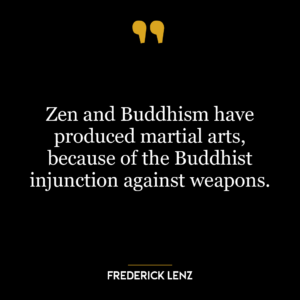This quote is a profound reflection on the concept of karma, a fundamental principle in Buddhism. Karma, in simple terms, is the law of cause and effect, suggesting that every action has a consequence. When the Buddha says, “He who causes suffering shall suffer. There is no escape,” he is indicating that if one inflicts pain, hardship, or distress on others, they too will experience the same in return. It’s a stern reminder of the cyclical nature of our actions and their repercussions.
The phrase “There is no escape” underscores the inevitability of this law. It suggests that no matter who you are, what your social status is, or how powerful you may be, you cannot evade the consequences of your actions.
Applying this quote to today’s world, it serves as a reminder of the need for empathy, compassion, and responsible behavior. In a world often riddled with conflict, inequality, and injustice, this quote is a call for accountability. It suggests that those who exploit, manipulate, or harm others will eventually face the repercussions of their actions.
In terms of personal development, this quote can be a guiding principle to make ethical choices and treat others with kindness and respect. It encourages self-awareness and introspection about the potential impact of our actions on others. It also promotes the understanding that our actions, good or bad, are not isolated events but are interconnected, forming a chain of cause and effect that shapes our lives and the world around us.
Therefore, the quote encourages us to strive for positive actions that create happiness and well-being for ourselves and others, rather than actions that cause harm and suffering. It teaches us that we are not just passive recipients of our fate, but active participants who can shape our destiny through our actions.















